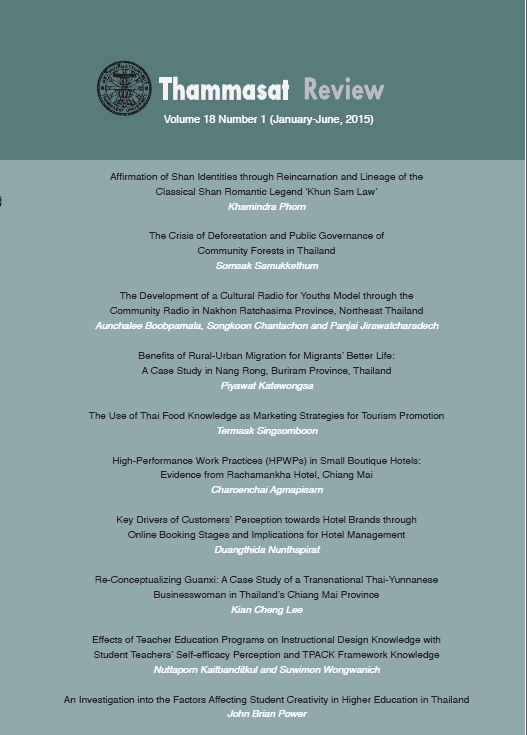High-Performance Work Practices (HPWPs) in Small Boutique Hotels: Evidence from Rachamankha Hotel, Chiang Mai
Abstract
High-Performance Work Practices (HPWPs) are increasingly being
employed by independently owned small boutique hotels as the means of
distinguishing themselves within highly competitive hotel markets. This recent trend is
accompanied by a notable increase in the number of independently owned boutique
hotels located in those tourist regions experiencing marked growth. This phenomenon
is particularly prevalent in Chiang Mai, Thailand, and one of the pioneering examples
is the Rachamankha Hotel, a customized 24-room boutique hotel which demands
high-performance work practices from its employees as the critical, primary strategy
in its efforts to maintain a competitive advantage.
This study uses practical evidence to exemplify how HPWP is regarded as one
of the strongest tools employed to guarantee optimum customer service. Accordingly,
one-time in-depth interview techniques are used to discern how Rachamankha Hotel
has sustained its employee-administration operations.
“Training”, “Empowerment” and “Reward” are the three pivotal characteristics
of HPWPs, systematically employed by the Rachamankha managerial staff,
predominantly populated by members of the so-called “Generation Y”. Also known as
“Millennials”, members of “Generation Y” were born in the early 1980s to early 2000s.
Continuous training programs, both formal and informal, are used to coach the staff,
who gain knowledge regarding the best work performance practices when completing
their duties. These training programs are combined with employee relationship
practices which are intended to empower and reward employees for their best
performances, increase employees’ work satisfaction and provide higher quality
service to the hotel guests and customers. Training is fundamental: without adequate
and continuous training, empowerment and reward alone are unlikely to be effective
incentives. This study suggests that these three HPWPs should be applied
simultaneously to frontline duties in order to ensure overall success in the hotel industry.
Downloads
How to Cite
Issue
Section
License
The opinions and ideas expressed in all submissions published in Thammasat Review are solely that of the author(s) and do not necessarily reflect that of the editors or the editorial board.
The copyright of all articles including all written content and illustrations belong to Thammasat Review. Any individuals or organisation wishing to publish, reproduce and distribute a particular manuscript must seek permission from the journal first.








